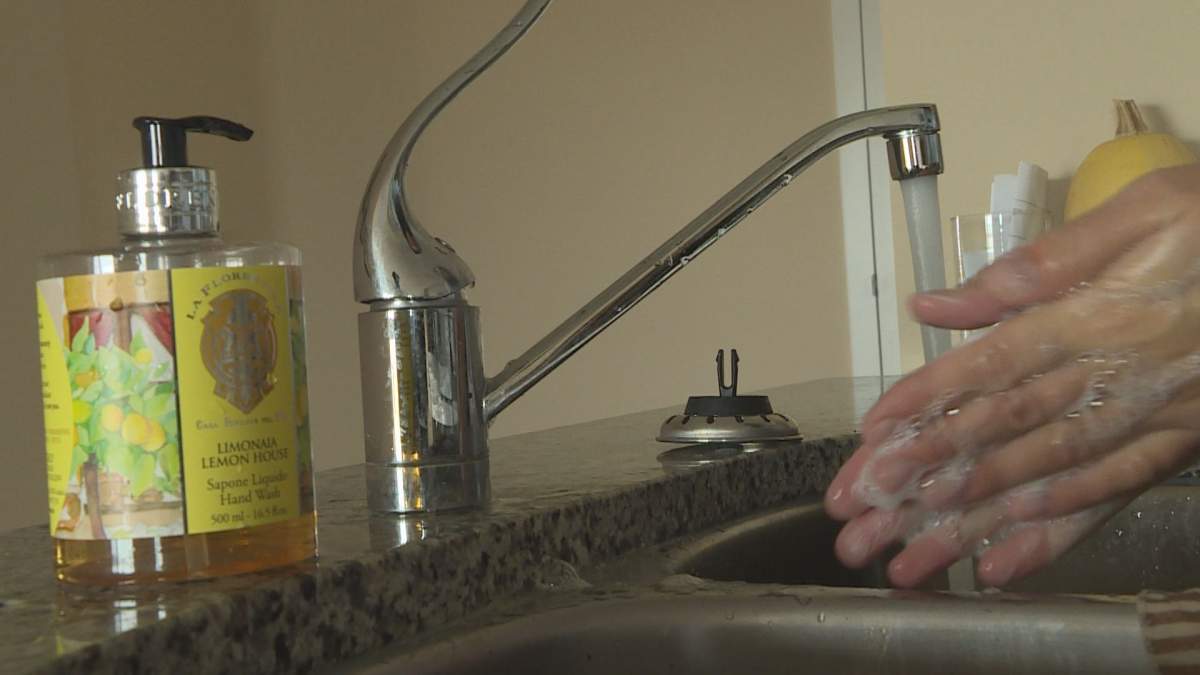There is room for improvement when it comes to hand hygiene compliance in health care workers, according to quarterly data from the Winnipeg Regional Health Authority.

WRHA data shows that hand hygiene compliance among physicians, nurses, and other health care staff was at 78 per cent in April, May, and June of this year.
“Our expectation is that we need to achieve 100 per cent compliance with hand hygiene,” WRHA chief medical officer Dr. Nancy Dixon told Global News.
“If you think about flying on an airplane — although air travel is curtailed right now — in terms of safety checks for the pilot and ground crew, you wouldn’t feel comfortable flying if they’re performing those safety checks 78 per cent of the time. So we feel that we ought to be doing 100 per cent of the time for the public, for our patients, residents, and clients.”
The health authority conducts quarterly audits to monitor hand hygiene and has launched campaigns and staff surveys to encourage compliance.

Get weekly health news
Dr. Dixon says while there has been a slight uptick in compliance since the start of the pandemic, more work needs to be done.
“In order to really emphasize the seriousness of this, we’re reframing this as a health care error or performance issue if staff are not consistently compliant with hand hygiene,” Dr. Dixon said.
The WRHA has guidelines in place for hand hygiene among staff, and staff are required to clean their hands before coming into contact with a patient or patient environment, before an aseptic or clean procedure, after body fluid exposure, and after contact with a patient.
The WRHA data also showed that hand hygiene was stronger with nurses, who had an 82 per cent compliance rate in the most recent quarter, while physicians had just 66 per cent compliance.
According to the Canadian Patient Safety Institute, hundreds of million of patients are affected by health care-associated infections every year.
Data from the institute also shows that proper hand hygiene and basic precautions during invasive procedures can reduce infection related to health care by 50 per cent. The organization also says different health care facilities have shown less than 40 per cent hand hygiene compliance by their workers.












Comments
Want to discuss? Please read our Commenting Policy first.